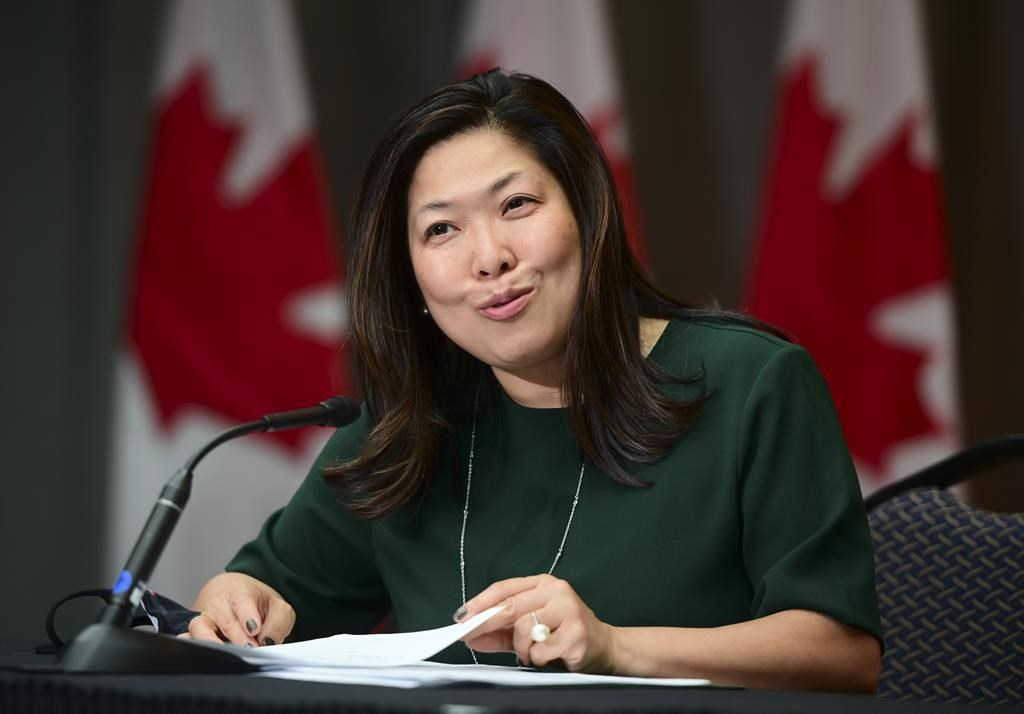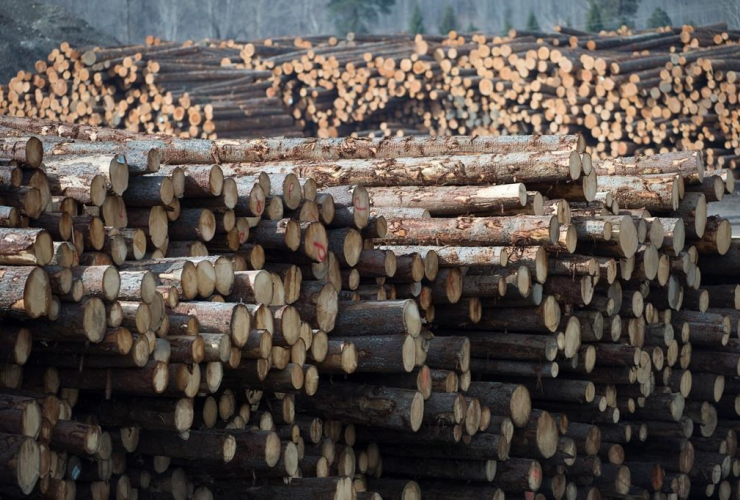International Trade Minister Mary Ng says it is extremely disappointing that the United States has decided to appeal a World Trade Organization ruling against its softwood-lumber duties, particularly because the U.S. is making it impossible for that appeal to be heard.
In April 2017 the U.S. imposed duties averaging about 20 per cent on most Canadian softwood exports, alleging that Canada was both unfairly subsidizing its industry and then dumping wood into the U.S. at unfair prices.
The WTO ruled in August that the U.S. could not back up its claims, and the U.S. has now appealed that decision.
But Ng says the U.S. decision to appeal is confusing since earlier this year the U.S. decided that the WTO appeal body did not need to exist.
Complaining that the WTO group has been making decisions beyond its jurisdiction, the U.S. has refused to appoint new members, leaving it without enough people to operate.
Stephen de Boer, Canada's permanent representative at the WTO, told a dispute-settlement meeting Monday that the U.S. refused an arbitration offer by Canada and its appeal to a body the U.S. has rendered defunct is compounding the unfairness of the duties.
"An appeal, in the current circumstances, has the effect of denying Canada its right, under the dispute-settlement understanding, to prompt settlement of this dispute," he said, according to a written record of his statements.
De Boer says the U.S. has collected almost $3 billion in illegal duties from Canadian softwood producers since they were introduced in 2017.
This is the fifth time the U.S. has gone after Canada's softwood industry since 1982. In most of the previous disputes, Canada has won before international tribunals and the two countries reached joint settlements.
The most recent agreement expired in 2015 but the U.S. agreed not to do anything about it for at least one year. The U.S. Lumber Coalition initiated a complaint less than a month after that moratorium ended, and the ensuing tariffs were announced in April 2017.
Canada is also fighting the tariffs through the North American Free Trade Agreement dispute process, which was in effect at the time the tariffs were imposed.
This report by The Canadian Press was first published Sept. 28, 2020.
Well, if anyone ever thought
Well, if anyone ever thought that the U.S. was a fair dealer on the subject of softwood lumber tariffs - the decades long history of tariffs and appeals and "settlements" - through multiple administrations and both political parties and much heralded "Free Trade" agreements; this running sore history should disabuse them.
Now that the raging wildfires are decimating the main store of U.S. softwood in its coniferous western forests, the softwood consumer lobbies (construction and pulpwood industries) may well vociferously object to the rising prices the American lumber lobby is trying to maintain.
To be fair, Canadian softwood is more easily harvested especially from the Boreal Forest that is disappearing under the industry's wastrel clear-cutting, compared to the vertical lumbering of the western mountains.
The truth of the matter is, all of the earths forests are under siege, by climate change, deliberate de-forestation, and human greed. Universal "tariffs" should be imposed by all governments on the ravaging of the planet's irreplaceable forests. That is unlikely to happen until humanity is sufficiently reduced by plague, by climate calamity, to the point where we are no longer outstripping Earth's capacity to sustain us.
One way or another it seems cosmic justice will have its way.





Comments